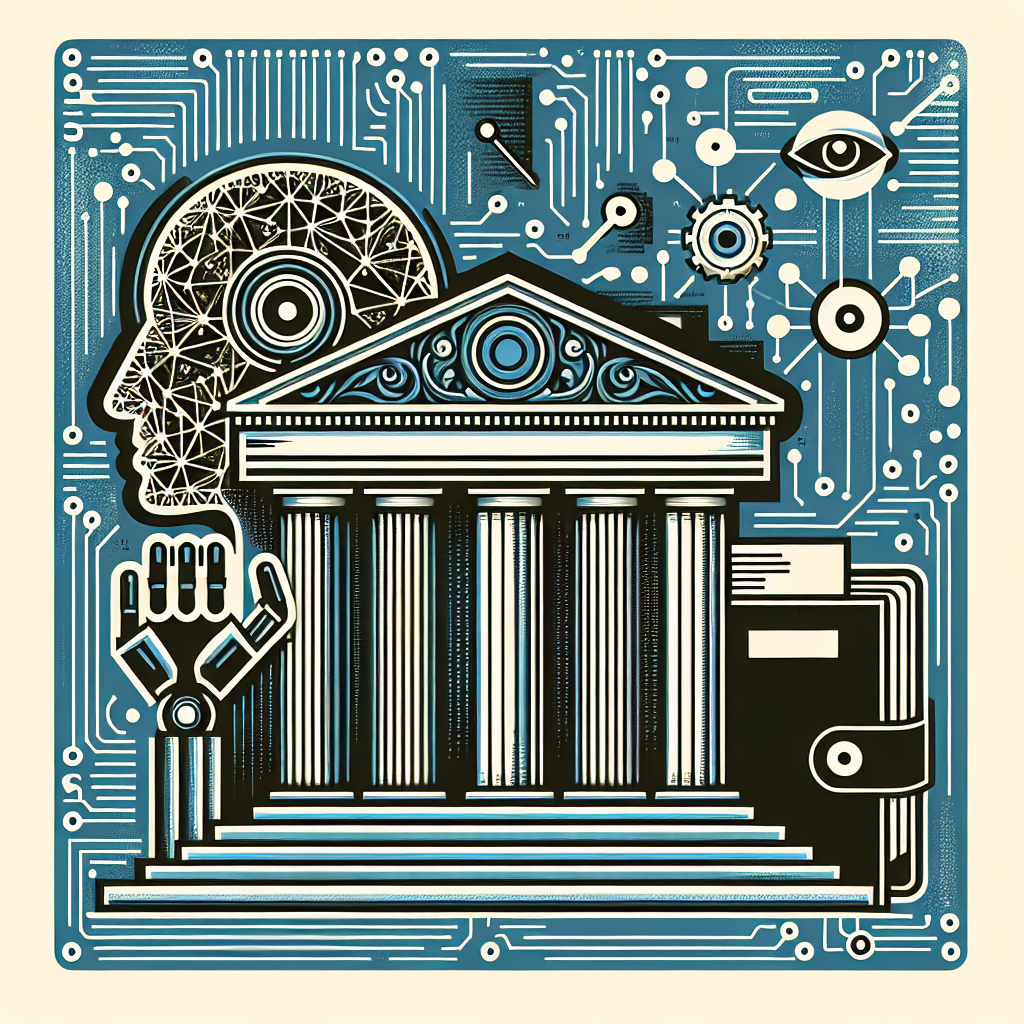Artificial Intelligence (AI) has rapidly transformed various sectors, including government service delivery. The integration of AI technologies has enhanced efficiency, accuracy, and accessibility in delivering essential services to citizens. From healthcare to transportation, AI has revolutionized the way governments operate and interact with their constituents.
One of the key impacts of AI on government service delivery is the automation of processes. AI-powered systems can handle repetitive tasks, such as data entry, processing, and analysis, much faster and more accurately than humans. This automation reduces the workload on government employees, allowing them to focus on more complex and critical tasks. For example, AI can be used to streamline the application process for government benefits, such as social security or unemployment insurance, by automatically verifying eligibility criteria and processing applications in a fraction of the time it would take a human to do so.
Furthermore, AI has improved the accuracy and efficiency of decision-making in government services. By analyzing vast amounts of data, AI algorithms can identify patterns and trends that humans may overlook, leading to more informed and data-driven decision-making. For instance, in the healthcare sector, AI can help identify potential outbreaks of diseases by analyzing patterns in patient data, enabling governments to respond more effectively and efficiently to public health emergencies.
AI has also enhanced the accessibility of government services for citizens. Chatbots and virtual assistants powered by AI technology can provide round-the-clock support to citizens, answering their queries and guiding them through various government processes. This 24/7 availability ensures that citizens can access government services at their convenience, without having to wait for traditional office hours.
Moreover, AI has enabled governments to personalize services for citizens based on their individual needs and preferences. By analyzing data on citizens’ interactions with government services, AI algorithms can provide tailored recommendations and suggestions to improve the user experience. For example, AI can analyze a citizen’s previous interactions with a government website and recommend relevant services or information that may be of interest to them.
Despite these benefits, the integration of AI in government service delivery also raises concerns about privacy and security. AI systems rely on vast amounts of data to function effectively, raising questions about the confidentiality and protection of sensitive information. Governments must ensure that AI systems comply with data protection regulations and implement robust security measures to safeguard citizens’ data from cyber threats.
Another challenge is the potential for bias in AI algorithms, which can perpetuate existing inequalities and discrimination in government services. For example, AI algorithms used in predictive policing have been criticized for targeting marginalized communities disproportionately. Governments must actively monitor and address bias in AI systems to ensure fair and equitable service delivery for all citizens.
In conclusion, the impact of AI on government service delivery has been profound, revolutionizing the way governments operate and interact with their constituents. By automating processes, improving decision-making, enhancing accessibility, and personalizing services, AI has the potential to transform government services for the better. However, governments must address concerns around privacy, security, and bias to ensure that AI technologies are deployed responsibly and ethically.
FAQs:
1. How is AI being used in government service delivery?
AI is being used in government service delivery to automate processes, improve decision-making, enhance accessibility, and personalize services for citizens. AI-powered systems can handle repetitive tasks, analyze vast amounts of data, provide round-the-clock support through chatbots and virtual assistants, and recommend tailored services based on individual needs and preferences.
2. What are the benefits of integrating AI in government service delivery?
The benefits of integrating AI in government service delivery include increased efficiency and accuracy, improved decision-making, enhanced accessibility for citizens, and personalized services based on individual needs. AI technologies can streamline processes, identify patterns and trends in data, provide round-the-clock support, and offer tailored recommendations to improve the user experience.
3. What are the challenges of using AI in government service delivery?
Some of the challenges of using AI in government service delivery include concerns about privacy and security, the potential for bias in AI algorithms, and the need to comply with data protection regulations. Governments must address these challenges to ensure that AI technologies are deployed responsibly and ethically to benefit all citizens.
4. How can governments address concerns about privacy and security in AI systems?
Governments can address concerns about privacy and security in AI systems by implementing robust security measures, complying with data protection regulations, and ensuring the confidentiality and protection of citizens’ data. It is essential for governments to prioritize data security and privacy when deploying AI technologies in government service delivery.
5. How can governments mitigate bias in AI algorithms used in government services?
Governments can mitigate bias in AI algorithms used in government services by actively monitoring and addressing bias in AI systems. This can be done through regular audits of AI algorithms, transparency in algorithmic decision-making processes, and implementing measures to ensure fair and equitable service delivery for all citizens.

